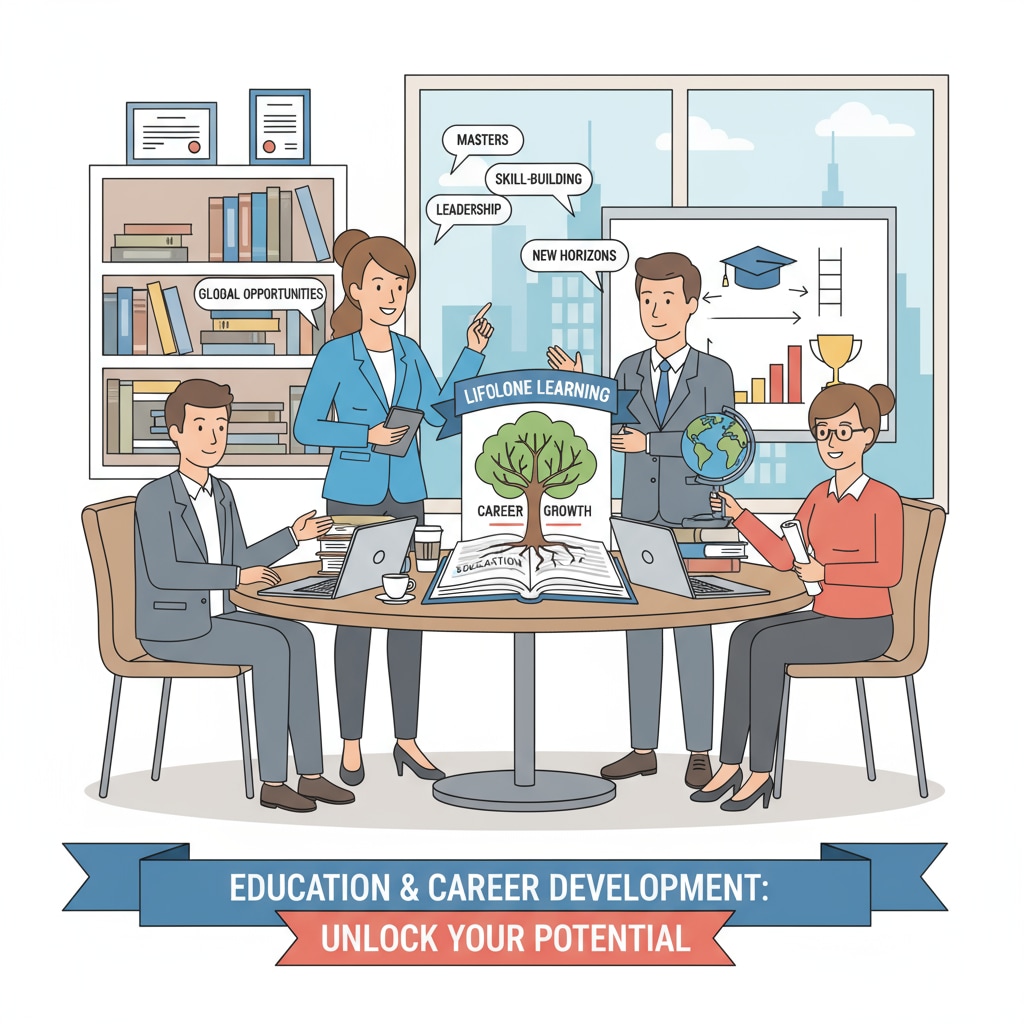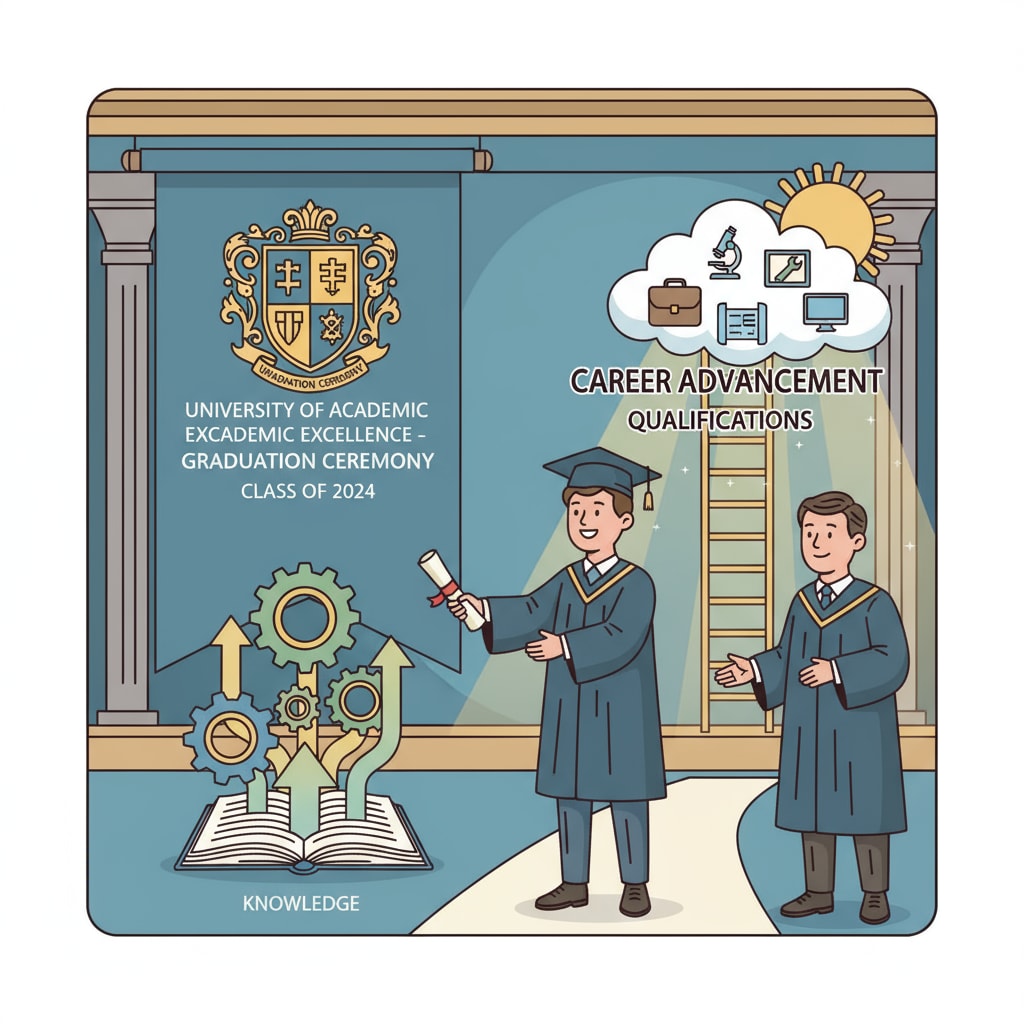In the dynamic landscape of the modern workplace, the concepts of education requirements, career development, and continuing education are intertwined, presenting a significant dilemma for many professionals. The age-old debate of choosing between academic qualifications and practical abilities has become a crucial factor in determining one’s career trajectory.

As the job market becomes increasingly competitive, understanding this relationship is essential for making informed decisions and breaking through career “glass ceilings.”
The Role of Academic Qualifications in Career Advancement
Academic qualifications often serve as a fundamental requirement for entry into many professions. A degree certificate can open doors to a wider range of job opportunities and higher starting salaries. For example, in fields such as medicine, law, and engineering, a formal education is not only necessary but also a prerequisite for professional licensure. According to Britannica, education provides individuals with the theoretical knowledge and specialized skills required to excel in their chosen fields. However, relying solely on academic qualifications may not be sufficient in today’s rapidly evolving job market.

The Significance of Practical Abilities in the Workplace
In addition to academic qualifications, practical abilities play a crucial role in career development. Employers increasingly value skills such as problem-solving, communication, teamwork, and adaptability. These skills are often developed through hands-on experience, internships, and on-the-job training. Practical abilities enable individuals to apply their theoretical knowledge to real-world situations and contribute effectively to the organization. As a result, individuals with strong practical skills may find themselves in high demand, even without a formal degree. For instance, in the technology industry, many successful entrepreneurs and professionals have achieved great heights through their practical skills and innovative thinking, rather than relying solely on academic credentials.
The Limitations of Lacking a Degree Certificate
While practical abilities are important, lacking a degree certificate can still pose significant limitations to career advancement. Many organizations have specific education requirements for certain positions, and individuals without a degree may be automatically excluded from consideration. This can result in missed opportunities for promotion and career growth. Moreover, a degree often serves as a symbol of credibility and expertise, and lacking one may make it more challenging to build trust and establish oneself in certain professional circles. However, it’s important to note that this does not mean that individuals without a degree cannot succeed in their careers. There are alternative paths available for those who are willing to invest time and effort in upgrading their skills and knowledge.
Diverse Continuing Education Paths
Continuing education offers a valuable opportunity for professionals to enhance their skills and knowledge, regardless of their academic background. There are several options available, including online courses, vocational training programs, and part-time degree programs. Online courses provide flexibility and convenience, allowing individuals to learn at their own pace and fit their studies around their work and personal commitments. Vocational training programs focus on developing practical skills in specific areas, such as coding, digital marketing, or project management. These programs can be completed in a relatively short period and often lead to industry-recognized certifications. Part-time degree programs, on the other hand, allow individuals to pursue a formal education while continuing to work. This option is suitable for those who wish to obtain a degree for career advancement but cannot afford to take a break from their jobs. According to Wikipedia, continuing education has become an increasingly popular choice for professionals looking to stay competitive in the job market.
In conclusion, the decision between academic qualifications and practical abilities is not a straightforward one. Both play important roles in career development, and individuals need to find a balance that works for them. By understanding the potential limitations of lacking a degree certificate and exploring diverse continuing education paths, professionals can make informed decisions and take proactive steps to overcome workplace challenges. Whether through further education or practical experience, the key is to continuously learn and adapt to the changing demands of the job market. This way, individuals can break through career “glass ceilings” and achieve their professional goals.
Readability guidance: The article uses short paragraphs and lists to summarize key points. Each H2 section provides a clear focus on different aspects of education and career development. The passive voice and long sentences are kept to a minimum, and transition words are used throughout to enhance the flow of the article.


